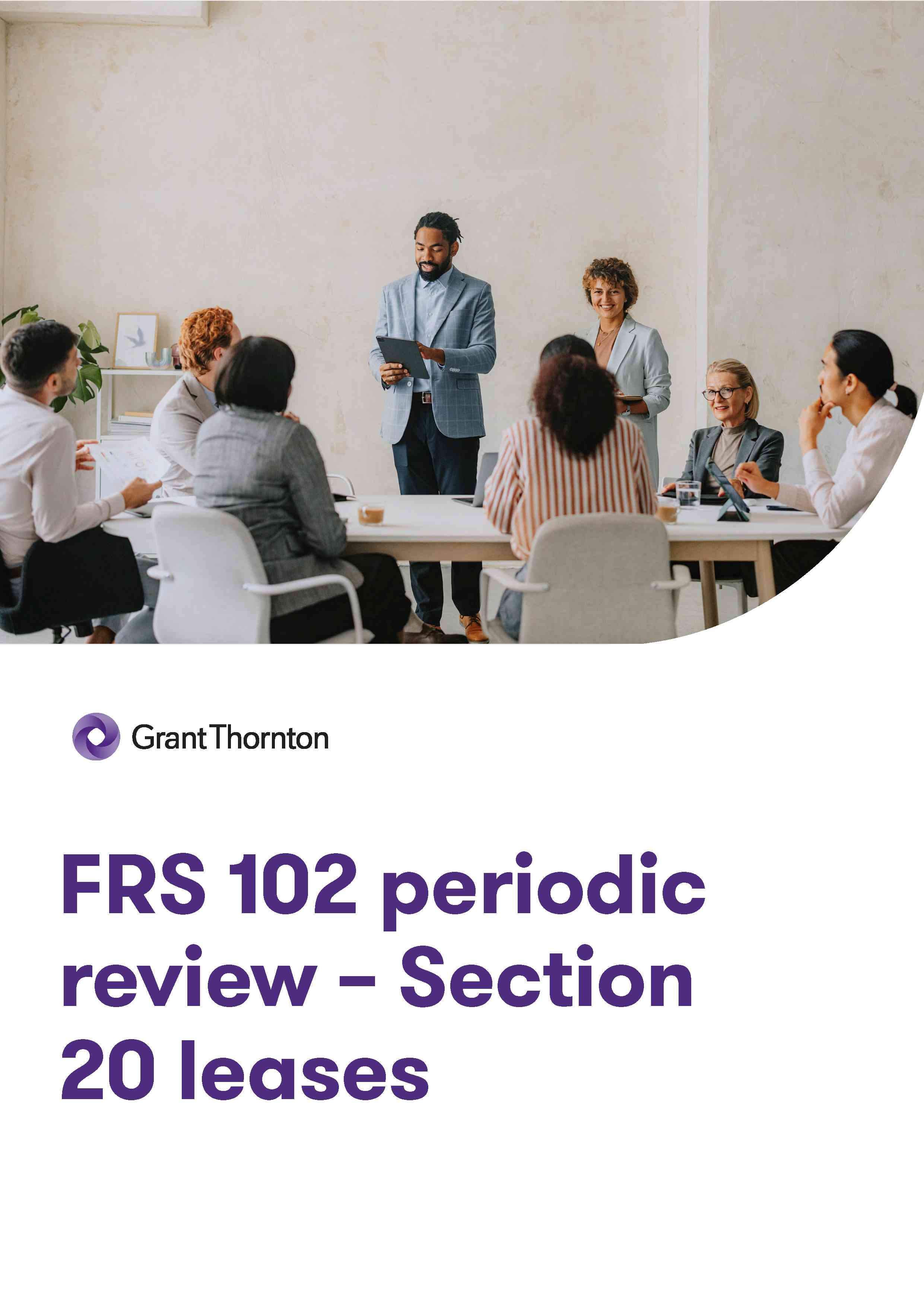
The Financial Reporting Council (FRC) has completed its second periodic review of FRS 102, introducing significant changes to how entities in the UK and Ireland account for leases as a lessee. These updates, effective for periods beginning on or after 1 January 2026 (with early adoption permitted), will have practical implications for a wide range of businesses.
Why this matters
The revised Section 20 of FRS 102 brings in a new on-balance sheet model for assets leased by lessees, similar to the model currently used in international standards (IFRS 16). The changes will see, subject to some exemptions, all lessees required to recognise their leased asset on their balance sheet, with a corresponding lease liability, even where they previously would have been off-balance sheet under operating leases. The changes are particularly relevant for accounts preparers, finance teams, and industry professionals who manage complex lease arrangements.
Key changes at a glance
- Lessee on-balance sheet model:
-
- Recognise leased asset as a right-of-use asset, and a corresponding lease liability.
- Exemptions available for low-value assets or short-term leases.
- Sale & leaseback transactions:
-
- Accounting for sale & leaseback transactions is largely unchanged, although the new standard provides additional clarification where this had previously been lacking
- Lessor accounting largely unchanged
- More detailed disclosures:
-
- The revised standard requires enhanced disclosures about lease arrangements, including both quantitative and qualitative disclosures, and information about lease commitments.
The revised lease accounting requirements do not apply to micro entities preparing accounts under FRS105.
Practical implications for businesses
Lessees who previously had operating leases for assets like property or company cars will now see these assets on-balance sheet with a corresponding liability. As a result, there will be no lease expense through profit or loss, but instead will have interest expenses and additional depreciation. Changes to non-current assets and both current and non-current liabilities could impact on gearing and other financial ratios, which may impact covenants with financing providers.
Transition options
Entities must apply the modified retrospective approach when transitioning to the new requirements, meaning that prior year comparatives are not restated. Some transition reliefs are available, and additional disclosures should explain the impact of transition.
Discount rates
The revised Section 20 allows three options for lessees when determining an appropriate interest rate to use in the calculation of their lease liabilities:
- Interest rate implicit in the lease;
- Incremental borrowing rate.
- Obtainable borrowing rate.
Lessees should consider which rate type is most appropriate for each of their leases.
What should you do next?
- Review lease agreements: review the entity’s existing lease agreements, identifying key terms and areas which may require additional judgement, such as selection of an appropriate discount rate, determination of a lease term, and whether any of the recognition exemptions apply
- Review covenants: Many financing arrangements require compliance with covenants and ratios, which may be impacted by the change in lease accounting; hold discussions with finance providers in advance of the changes being implemented to determine the impact of these.
- Prepare for new disclosures: Ensure systems can capture the required data for enhanced reporting.
Grant Thornton’s technical experts are closely monitoring these changes and can help you navigate the transition with confidence.
Update your subscriptions for Grant Thornton publications and events.






